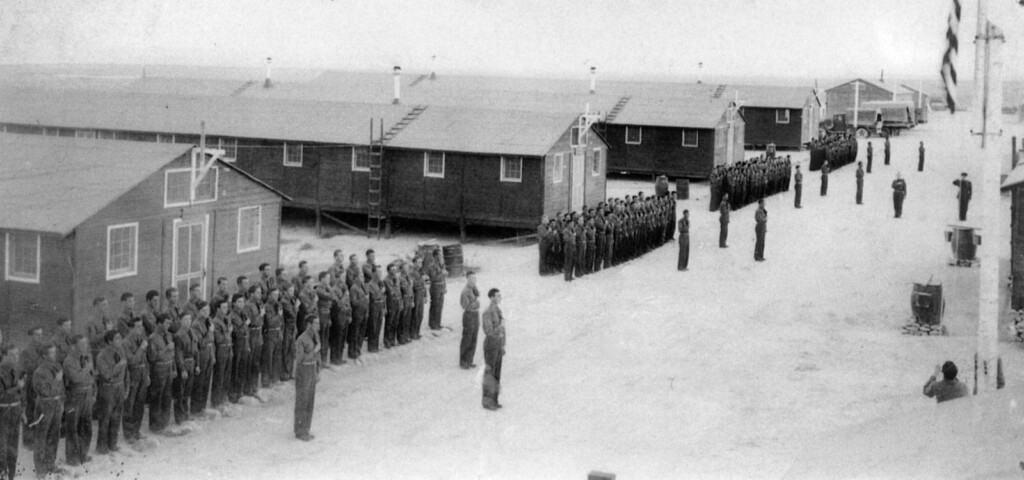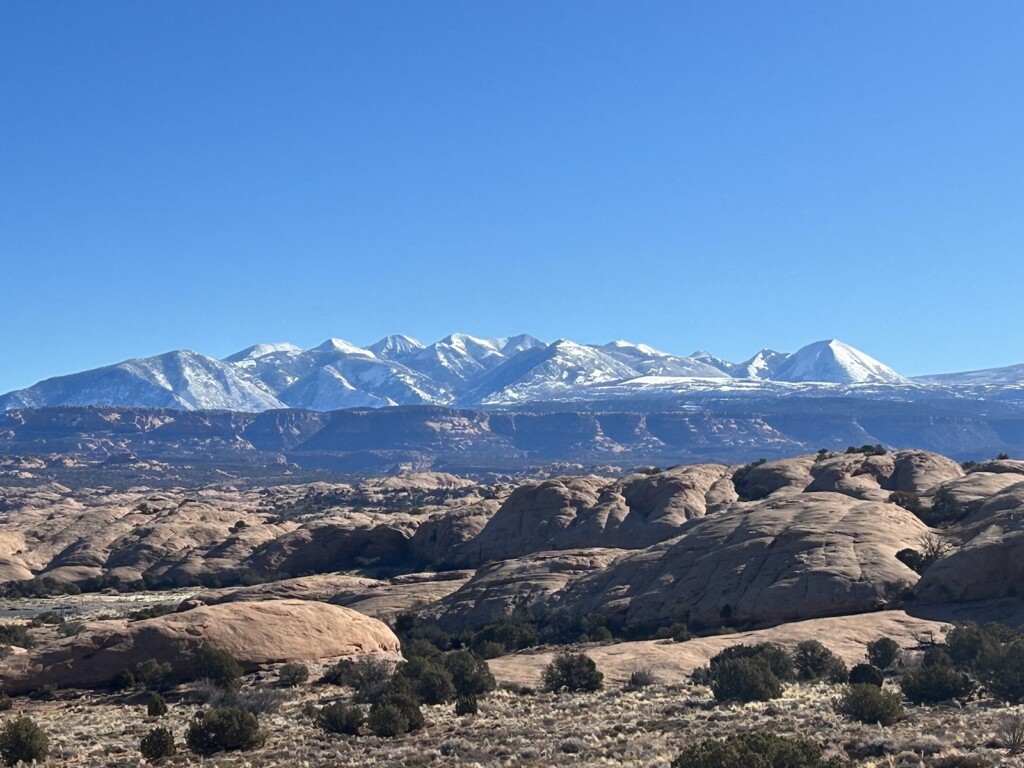
“The main thing that’s happening here right now is potatoes,” said Tom Mayer, farm manager at Castle Valley Farms. Mayer is exuberant about the tubers: the many varieties, their nutritional value, and growing them organically. In past years, Castle Valley Farms has devoted about one fourteenth of an acre to potatoes. This year, they’ve planted 14 acres, which Mayer says will, if all goes well, yield around half-a-million pounds of potatoes.
Castle Valley Farms is part of Castle Valley Academy, a 320-acre farm and high school campus established in 1970 in the eponymous town northeast of Moab and just a few miles from the Colorado River. The school is rooted in the Seventh Day Adventist faith, and students work on the farm in addition to their regular studies as a way to learn skills, build character, connect to the earth, and grow healthy foods.
“It’s first and foremost a school,” Mayer said.
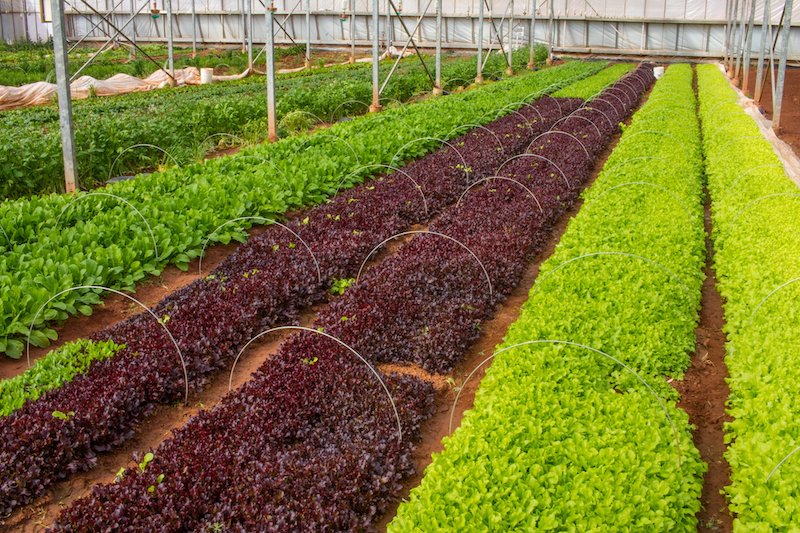
Mayer first started at Castle Valley as a natural science teacher, and later moved into more farm work. The farm is irrigated with water that flows down from the La Sal Mountains above the valley, and everything is grown organically. Healthful eating is a significant part of Seventh Day Adventist culture — focusing not only on a diet rich in whole, unprocessed, plant-based foods, but also on growing those foods naturally and without chemicals.
The students each have their own garden plot where they can choose what to grow, and the produce is used in the school cafeteria. Students also help with chores like caring for seedlings in the greenhouse and pruning fruit trees, while learning skills like building, canning, and cooking.
In addition to potatoes, the farm grows wheat and alfalfa, as well as a variety of vegetables: tomatoes, peppers, garlic, cucumbers, salad greens and microgreens. They also grow lavender and make their own lavender oil. There are fruit orchards and a bakery. They sell bread at the Moonflower Market Community Cooperative in Moab, at their on-site store, and through their website. Right now Mayer is starting a crop of strawberries in hanging pots in the campus’s half-acre greenhouse.
The current potato fervor at Castle Valley Farms was sparked by well-known potato expert Jeff Bragg, who got involved with a Moab Seventh Day Adventist Church project called Moab Manna. When the pandemic first prompted mass shutdowns, the church brainstormed what they could do to relieve the strain on their community. They came up with growing food to buffer against possible food shortages and to help families hurt financially by the shutdown.
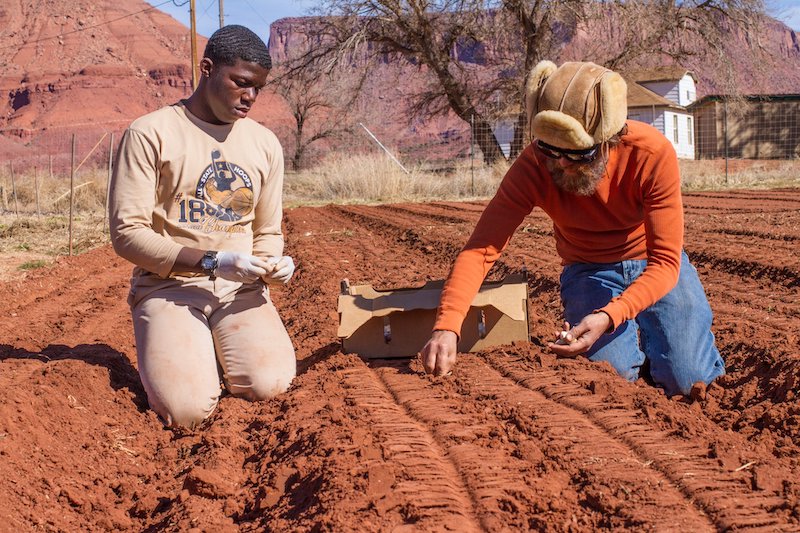
They got access to a plot of land in Moab and settled on potatoes as a nutritious, calorie-rich crop. With Bragg’s help, Moab Manna grew 30,000 pounds of potatoes in their first year. They gave away the spuds to the Navajo Nation, the Utah Food Bank, and anyone in the community who wanted some. While Bragg advised the Moab Manna project, he also visited Castle Valley Farms and persuaded Mayer that he should grow more potatoes, too.
What’s particularly special about Castle Valley Farms’ potatoes is that they come from organic nuclear stock, which are plant tissues used to grow new crops. Many potatoes labeled as organic, Mayer said, are grown from nuclear stock that’s been sprayed with chemicals. Chemicals aren’t used while growing the plants, which means they still qualify as organic, but Mayer said the chemical from the nuclear stock persists in the new potatoes. A grower in Minnesota gave Castle Valley Farms a deal on organic nuclear stock for over 30 heirloom varieties of potatoes.
“These potatoes are grown for their nutritional value, their shelf life — and the colors! Oh, they’re just beautiful,” Mayer said. He described a few of the varieties the farm put in the ground this year, such as the Harlequin Gold, which has a low glycemic index, mottled rose-and-yellow skin and yellow flesh. The Huckleberry Gold, which has purple skin and yellow flesh, also has a low glycemic index.
“Oh man, they are so good,” Mayer said. “Just buttery.”
A lot of the potato crop underway right now will be harvested for seeds to sell to companies like Baker Creek Seeds, one of the largest heirloom seed companies in the country. Actual potatoes will be sold through Moonflower Market or at the Castle Valley Farms store. People can also order produce on the farm’s website and pick it up in Castle Valley or have it delivered to a drop-off site in Moab.
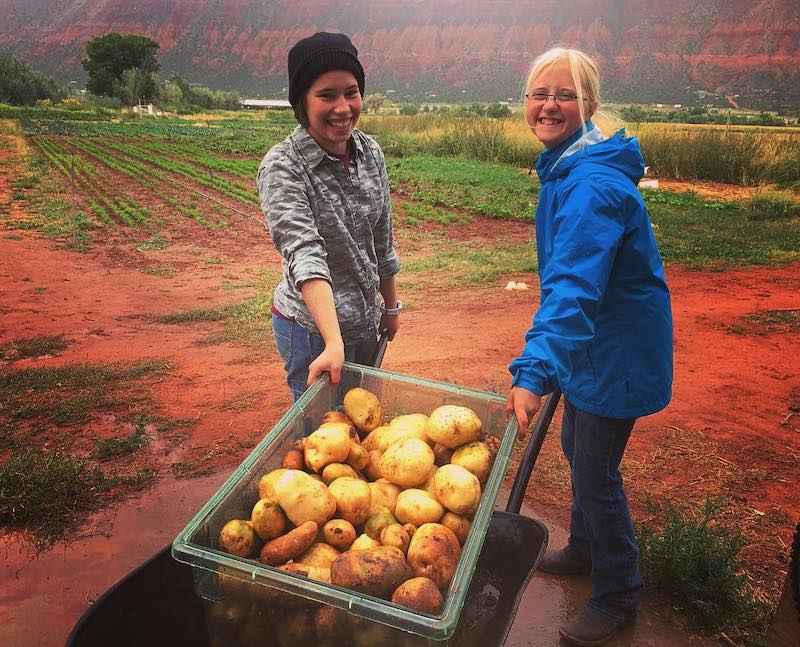
The farm also has a stand at Moab’s weekly farmer’s market, as well as a food cart where they sell vegan “carrot hot dogs.” Mayer has more dreams for the future: he hopes to have a full-size food truck at the farmer’s market with a wider variety of options, especially potato-based foods like french fries or tater tots. He’d like to build a wood-fired pizza oven and have a farm-to-table pizza restaurant on the Castle Valley campus. But this season staff may have their hands full just harvesting, processing and selling the large expected potato crop. They don’t have enough storage space to accommodate the volume of potatoes they anticipate, so they’ll have to be constantly turning them over as they harvest.
“It’s going to be busy, that’s for sure!” Mayer said.
RELATED CONTENT
Riverbed Ranch Utah: A Cult, or Utah’s First and Only Farm Steading Community?
Vanishing Farmland: Paradise Lost as Vital Farmland Gives Way to Development in Ogden Valley, Utah
Tagge’s Famous Fruit & Veggie Farms on the Biggest Challenges that Utah Farmers Face Today
SUPPORT LOCAL JOURNALISM AND SUBSCRIBE TO PRINT MAGAZINE
Subscribe to Utah Stories weekly newsletter and get our stories directly to your inbox





